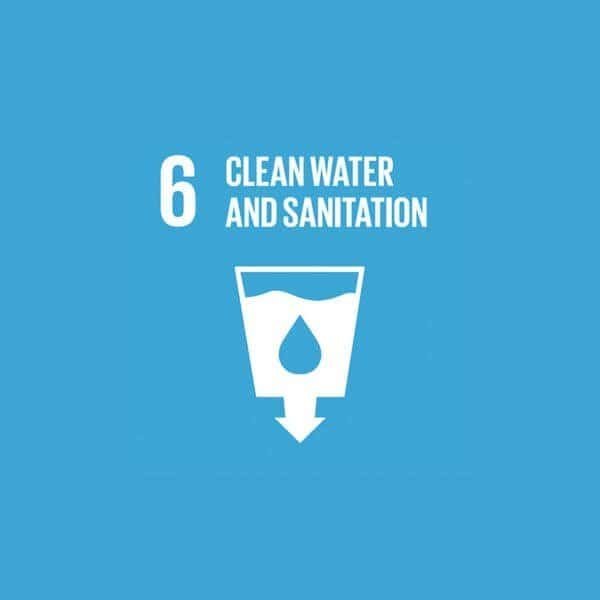
“Amiblu water infrastructure solutions help us with all the challenges of climate change: storm waters, heavy rains, water scarcity.”

Ensure availability and sustainable management of water and sanitation for all.
Solving water scarcity
Smart materials
Water scarcity through climate change affects millions of people around the world every day, and it is a problem that Amiblu is passionate about solving.
“For us, climate change is about delivering smart solutions for water infrastructure and really helping solve the water scarcity problem on the planet,” says Jane Haavaldsen, Development Director at Amiblu.
When it comes to securing access to water, Amiblu uses a composite known as Glass Reinforced Plastic (GRP) to make high-performing water pipes. This versatile, durable, and environmentally-friendly low-carbon material can play a significant role. And Amiblu should know: the company has been innovating with GRP pipes for over 60 years.
Energy efficient
Amiblu’s GRP pipes are designed for efficiency. They are lightweight, which makes them easier to transport and install compared to conventional pipes made of concrete or metal. The material ensures water flows more easily, which leads to higher kilowatt-hour returns, increasing energy efficiency. Resistant to corrosion, the pipes prevent water wastage from leaks and last for generations.
The pipeline efficiency in different applications, from supplying potable water to dealing with wastewater, makes it perfect for tackling climate change.
“Amiblu water infrastructure solutions help us with all the challenges of climate change: storm waters, heavy rains, water scarcity. [Through] our solutions, whether it’s pipes, tanks, intelligent pipe systems – we’re solving all of those problems,” says Haavaldsen.

Where in the world?
Amiblu is headquartered in Klagenfurt, Austria, and has R&D facilities in Sandefjord, Norway.
As the world’s largest supplier of GRP pipes, with products used in more than 125 countries, the company has production facilities worldwide, in Germany, Spain, Poland, Romania, Morocco, and Australia, and an international workforce of 1,800 people. Beyond its own operations, a global network of Flowtite and Hobas technology licensees is also contributing to this shared mission.

Water of life: desalination with GRP
Droughts in Morocco have been increasing in frequency and intensity over the past years due to climate change. This is why the country is considerably expanding its desalination capacity to provide additional water resources.
One of the projects launched in this context was the modular JORF desalination plant to provide potable water (115,000 cubic meters per day) for the citizens of El Jadida and its surroundings. Amitech Maroc, an affiliate of the Amiblu Group, supplied more than 7,000 meters of biaxial GRP pipes from DN 400 to DN 2000 for this complex water system.
The energy efficiency of GRP pipes makes them an optimal choice for the generally rather energy-intensive desalination plants: the smooth inner liner of GRP pipes minimizes friction and pressure head losses, providing more energy-efficient water transmission and distribution.
What does a sustainable future look like?
“The decisions we make today shape the future of the globe from tomorrow,” says Wolfgang Stangassinger, Amiblu CEO.
Amiblu’s commitment to protect precious resources through sustainable water infrastructure helps to meet SDG 6 – which aims to ensure availability and sustainable management of water and sanitation for all.
Did you know?
The Amiblu GRP pipes used for the JORF desalination plant in Morocco are reinforced in the hoop and axial directions to resist pressure end thrust and bending loads, ensuring long-term performance even under extreme conditions.